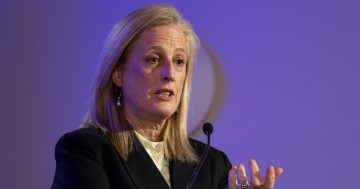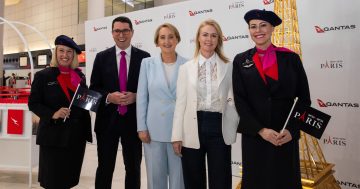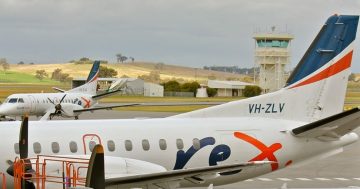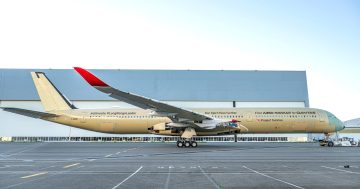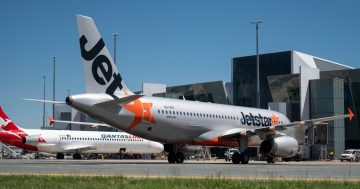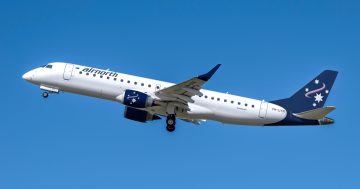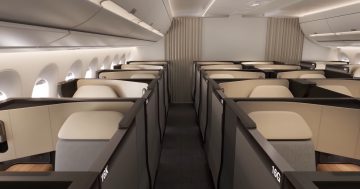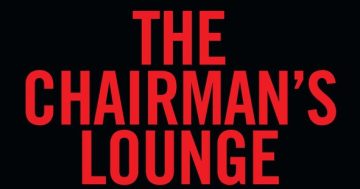
Status runs for flying public servants are prohibited, but that doesn’t mean they’re not happening. Photo: Canberra Airport/Facebook
Public servants booking expensive flights to accrue more airline status credits could be a thing of the past if the Finance Department gets serious about clamping down on the practice.
Currently, status credits can still be accrued by government travellers (unlike frequent flyer points), but APS policy explicitly forbids officials from letting that influence when flights are selected.
The Finance Department has heard evidence that these rules are being flouted, and the Australian Competition and Consumer Commission has also taken a close look at how status credits are being exploited.
In its review of government travel polices released this month, Finance put travelling public servants on notice, as well as airlines offering them bonus credits.
“The review heard anecdotal reports of frequent travellers waiting until bonus status credit offers were made by airlines to book their upcoming trips,” the department said in its report.
“Airlines need to ensure promotional offers like these are not applied to official travel under any circumstances.
“In response to bonus status credit offers, Finance has proactively written to all domestic panellists during the review to remind them of their obligations under the Airline Deed to not offer bonus status credit offers to government travellers.”
Virgin and some smaller airlines have themselves suggested that status credits be suppressed or removed from all government travel – their motivation being to counter the overwhelming market share held by Qantas.
Public service travel jumps 20 per cent during Qantas promotions that offer double status credits.
But with the government’s airline panel up for re-tender, Finance won’t be making any moves on status credits until at least next year.
“Finance does not support making significant changes to the Airline Deed close to its expiration,” it states.
“However, as part of the consultation process ahead of the next re-tender of the airline panel, the issue of status credits suppression will be canvassed with the market, along with any perceived improvements as a result of the recommendations within this review.”
The ACCC has also examined the manipulation of airline status credits in its latest review of domestic airline competition.
Its report noted that “consumers may be inclined to spend more than they otherwise would in pursuit of points and status credits” and referenced an Australian Loyalty Association survey showing 71 per cent of Aussie travellers claim loyalty programs influence their purchases.
“With respect to frequent flyer status credits, it can be a particularly influential factor if a person is within reach of achieving the next status tier,” the ACCC said.
“A US-based academic study found that because they are less likely to choose alternative flight options, loyalty program members on average paid 8 per cent more than others when they are close to the target tier.
“This influence can be even stronger if the cost of the flight is being met by the traveller’s employer.
“Some people even take flights with the key purpose of maintaining or earning a status tier.
“In this regard, a ‘status run’ is where a traveller has deliberately booked a flight to earn status credits for a lower cost per credit, either because of the nature of the flight or a promotion.”
As previously reported, the Finance review also recommended that federal bureaucrats should be banned from accepting free flight upgrades from airlines except in circumstances where there are no other seats available.
The Federal Government accepted the recommendation, but it hasn’t adopted the proposal to require all public servants to travel in economy class on short trips.
Finance Minister Katy Gallagher has also written to Qantas Group chief executive officer Vanessa Hudson demanding answers over the airline’s pricing structure for flights in and out of Canberra, which regularly skyrocket during parliamentary sitting weeks.
Recently released data from the Canberra Airport Group shows airfares soar on the eve of parliamentary sitting periods, with price increases of up to 135 per cent for short flights.
In a response to Region, Qantas noted there were currently fares to Canberra during parliamentary sitting weeks available from $236 between now and the end of the year.
“There are a number of factors that impact the cost of airfares, with supply and demand being a key element as well as airport charges,” a Qantas spokesperson said.
“High demand during peak periods, such as parliamentary sitting weeks, can drive up the price of airfares on routes to Canberra.
“As with all routes, the cheapest fares sell out early, with fares increasing as seat availability reduces.”
Original Article published by Chris Johnson on Region Canberra.


